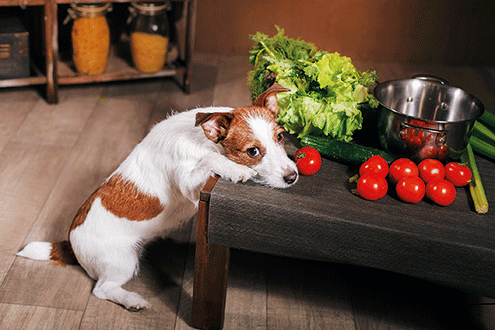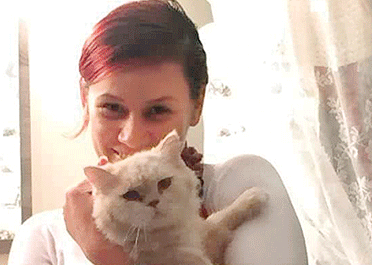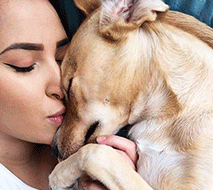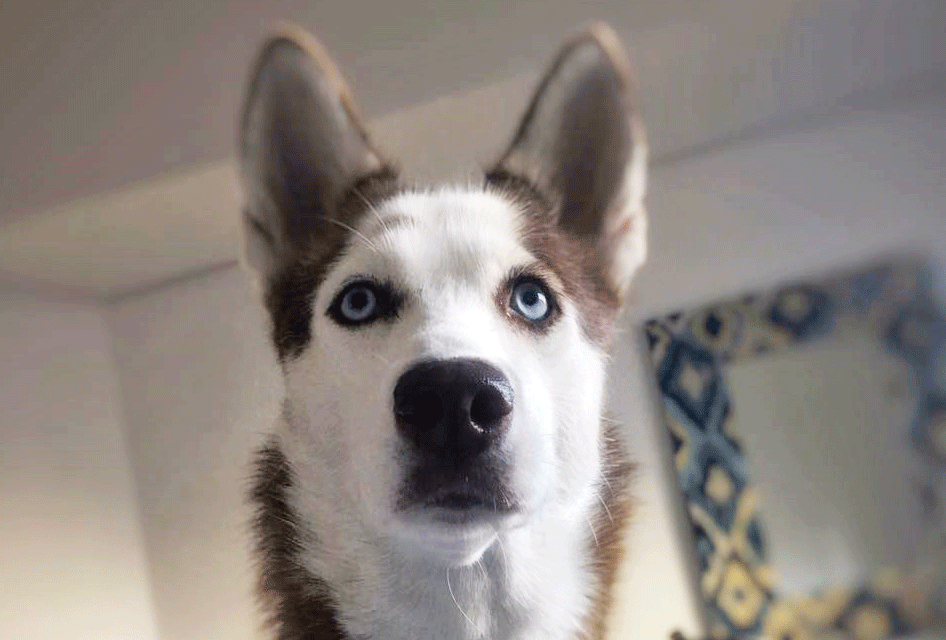Dareen Al Hiyari turned vegetarian five years ago after witnessing the killing of fish for her to eat, and then fully vegan three years later when she learned how badly animals are abused and tortured to cater to the human demands for animal-based food, clothing, entertainment, testing and research. “What’s normal is not always what’s right — history shows us,” says the Dubai-based Jordanian software engineer. “I’m sure every kind person is against needless killing, confinement and abuse. They just are unaware of the extent of the cruelty.”
Dareen, 33, feels she is leading a healthier life. Her digestion and energy levels have improved and she gets fewer colds in winter. So it was natural that when she rescued and adopted her cat Pudding, he was put on a vegan diet too.
“Why should I give more value to one animal’s life over that of another animal?” she asks. “I do not believe that the value of the cat is more than that of the chicken.”
Good for both of us
Dareen and her friend Athena Matheou, 25, are part of a small but dedicated group of vegans who believe their pets’ diets should reflect their own beliefs.
Matheou embraced veganism after discovering its health benefits. The British expat, who is also a raw vegan chef, credits a vegan diet for helping her manage an eight-year-old battle with endometriosis as well as double vision with a vegan diet.
Like Dareen, she too isn’t comfortable taking another animal’s life to feed the ones that live in her home. “To me there is no difference between a dog or a cow or a chicken,” she says. “And when your companion animal can thrive on a vegan diet, why kill other animals to feed your own?”
Matheou’s rescue dogs — Shanti (a saluki mix) and Jaya (a husky mix) — are both on a vegan diet and have adjusted very well, she says. “Both were extremely malnourished. One had ehrlichia after being infested with ticks. They gained weight, grew back their beautiful coats and reached peak health on a vegan diet.”
Pet owners turn to plant-based foods for ethical, environmental and health reasons, noting that byproducts from mistreated or diseased livestock can make it into food, and that animal agriculture is a contributor of greenhouse gases and needs copious amounts of water. “Commercial pet foods are not healthy as they are waste products of the meat industry,” says Dareen.
The idea of putting cats and dogs on a vegan diet is often met with hard scrutiny by veterinary nutritionists and animal welfare advocates reluctant to recommend the meatless route. Experts believe that while dogs can draw nourishment from either animal or plant sources, cats are obligate carnivores that need nutrients found in meat to survive.
Lew Olson, author of Raw and Natural Nutrition for Dogs, makes this analogy on Webmd.com: “Trying to feed a cat a vegan diet would be like me feeding my horses meat. You’re taking a whole species of animal and trying to force it to eat something that it isn’t designed to handle.”
However, Dareen is convinced she can adequately square her ethical beliefs with her cat’s nutritional needs. She feeds Pudding a special brand of vegan food purchased at an organic supermarket. She says the food has nutrient-complete formulae and gives her a sense of confidence that Pudding is getting everything he needs. She adds that he has seen a marked health improvement on the diet and now weighs 5.5kg, as compared to 4kg at the time of rescue in February.
Matheou, on the other hand, feeds her dogs natural vegan dry food every day. She also gives them fresh fruits, coconut oil, greens, raw nut butters and sometimes cooked rice, lentils and sweet potatoes.
While vets agree dogs need a balanced diet, they are divided over whether plants and supplements make for an adequate meat substitute.
No long-term studies
Dr Lisa M. Freeman, a veterinary nutritionist and professor at Tufts University in Massachusetts, says there are no long-term studies on the effects of veganism in dogs. A vegetarian herself, Dr Freeman understands the ethical arguments but believes that a balanced diet for dogs should include meat.
“We know a lot about dog nutrition, but there are unknowns as well. We want them to be eating a diet that is nutritionally balanced. That means it has all the proteins, vitamins and minerals that they need in the correct ratios and with the best quality control. It isn’t easy to formulate a high-quality diet for dogs, and it’s particularly difficult with a vegan diet.”
A 2015 study published in the Journal of the American Veterinary Medical Association that looked at vegetarian commercial pet foods found that of the 24 foods tested, most were not compliant with the minimum nutritional standards set by the feed producers’ group. Because some foods aren’t always formulated correctly, Dr Freeman says, a meat-based diet from a reputable company is the best way to make sure nutritional gaps are filled. “If people are doing this because they are under the impression that it’s healthier, that’s just not true.”
While plant-based diets are known to have health benefits for humans such as reducing the risk of chronic illnesses like heart disease or type 2 diabetes, pets will not necessarily get the same benefits.
“While dogs and cats get some of the same heart diseases that people do, they are very resistant to coronary artery disease, the main heart disease affecting humans,” Dr Freeman says. “So the nutritional strategies that are beneficial for preventing heart disease in humans aren’t useful in dogs and cats.”
Dr Lorelei Wakefield, a vet who regularly sees vegan dogs as part of a consultancy service she runs in Philadelphia, says her clients do fine on the diet. “We don’t know yet what the healthiest diet is for them, but ethically, for someone who believes in vegan ideals, it makes sense.”
Mary Straus, who runs a website called DogAware.com and writes for the WholeDog Journal, a holistic dog newsletter, disagrees. She says that some nutritional deficiencies take months and even years to show up in vegan dogs. Signs of malnutrition range from a dull coat and digestive issues to heart disease and early death.
“Our knowledge of nutrition is not great enough to ensure that this is the case, even if AAFCO guidelines are met,” she said in an email, referring to the feed-makers’ group. “To be safe, a new set of guidelines would have to be developed for vegan diets, along with long-term testing to ensure that the diets actually meet the animals’ requirements,” she wrote. “This has never been done.”
Straus, who feeds her Norwich terrier Ella a mostly homemade diet with meat, worries about the consequences of forcing cats and dogs to eat a diet they were not designed for.
If you aren’t willing to give a dog the diet it really wants, she says, get a rabbit or a guinea pig: “There are lots of herbivores out there that make great pets.”
How to prepare
Transitioning your pet to a vegan lifestyle can seem daunting, but Dareen says the idea is a lot scarier than actually doing it. Her main source of information was a book, Obligate Carnivore by Jed Gillen, which explains how to put cats on a vegan diet and to make sure the food is nutrient complete. “Cats are carnivores, so we have to make sure we are giving them the nutrients they need. So you need to buy specific brands that have all these nutrients, particularly taurine,” Dareen says.
Matheou, for her part, kept the vets treating her dogs aware of what they were eating. Though she feels vets will recommend the food they think is best, she says regular check-ups ensure your pet is at the right weight and faring well on a particular diet.
Whether it’s right to align pets’ diets according to their owners’ is complex and difficult to answer, says Dr Dieter Malleczek, Doctor of Veterinary Medicine at Blue Oasis Veterinary Clinic in Dubai Investments Park. “The question that has to be raised is: Can you provide the animal the same balanced food? If you feel you want to put your pet on any kind of a diet, it’s highly advisable to consult a veterinary nutritionist [first]. They will be able to assist you with finding a balanced food ratio [protein source, carb source, fat source] for your pet with the needed supplements.”
If you’re wondering whether to latch onto the trend, ask yourself — and your vet — if what you propose is good for your pet.
— With input from The New York Times
















